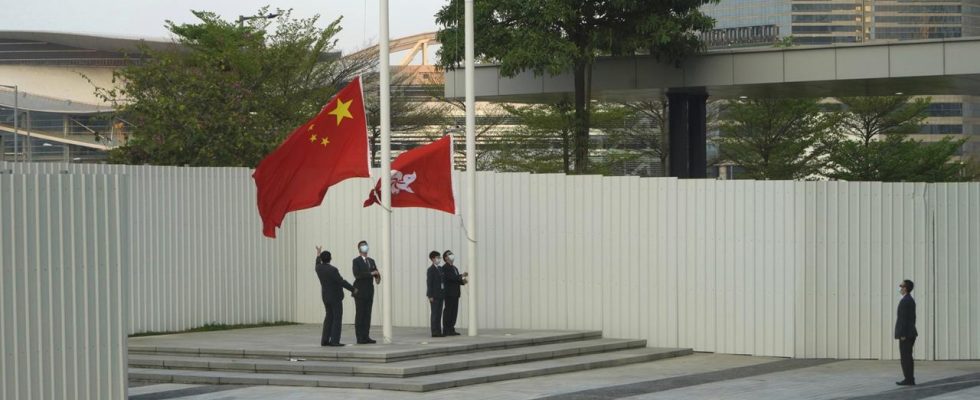Despite international criticism, the so-called “security law” has been legally valid in the financial metropolis of Hong Kong since today. This gives the authorities further powers to take action against critical voices.
Hong Kong’s controversial so-called “security law” came into force overnight. The law had previously sparked massive international criticism and concerns about eroding freedoms in China’s special administrative region.
On Tuesday, Hong Kong’s Legislative Council unanimously passed a corresponding bill. As a result of the mass protests for more democracy more than four years ago, Hong Kong’s “security law” tightened sentences and gave the police more power to investigate or arrest suspects in certain cases.
Sharp international criticism
The law was met with sharp criticism internationally. The European foreign policy chief Josep Borrell criticized that it could “exacerbate the erosion of fundamental freedoms and political pluralism.”
British Foreign Secretary David Cameron said the new law undermines the fulfillment of binding obligations under international law such as the 1997 Joint Declaration between Britain and China on the return of the Crown Colony and the UN Convention on Civil and Political Rights. The Chinese government rejected the criticism.
Law should “black-clad violence and color revolutions” impede
According to Hong Kong’s Prime Minister John Lee, the additional “security law” that has now been enacted locally is intended to close loopholes in the Beijing law. Dozens of crimes, some of them new, are divided into five categories: treason, insurrection, theft of state secrets and espionage, sabotage endangering national security and external interference.
The law “will allow Hong Kong to effectively prevent, prohibit and punish espionage activities, foreign intelligence plots and traps, infiltration and sabotage by hostile forces,” Lee said on Tuesday. In addition, the law will also effectively prevent “black-clad violence and color revolutions” – he was referring to the pro-democracy protests that began in 2019. Lee is under US sanctions over his monitoring of the protests as security chief.
Since July 1, 1997, the former British crown colony has been part of China again and is governed according to the principle of “one country, two systems”. This agreement actually stipulates that Hong Kongers will enjoy “a high degree of autonomy” and many freedoms for 50 years until 2047.

